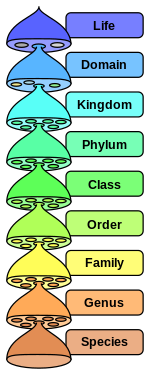I'm not an expert in biology -which is the reason I'm posting this, in the hopes someone more knowledgeable can elucidate.
It seems to me that the terms "race" and "species" -when referring to aliens from other planets- are used interchangeably, perhaps irresponsibly, in Star Trek series, and even though I'm no expert, I believe both terms aren't synonymous nor appropriate.
According to this wiki graphic, for example, a species sits at the bottom of a biological classification which consists of much larger groups such as Domains, Kingdoms, Classes, but these definitions pertain to earth organisms, therefore it cannot describe alien worlds.

The term race also poses problems. According to wiki:
"Race is a classification system used to categorize humans into large and distinct populations or groups by anatomical, cultural, ethnic, genetic, geographical, historical, linguistic, religious, or social affiliation."
Since race is used to categorise humans, it can only be applicable to those populations, therefore it's incorrect to refer to aliens as "races", in my opinion.
So, what could be the appropriate term to refer to alien inhabitants of other planets?
It seems to me that the terms "race" and "species" -when referring to aliens from other planets- are used interchangeably, perhaps irresponsibly, in Star Trek series, and even though I'm no expert, I believe both terms aren't synonymous nor appropriate.
According to this wiki graphic, for example, a species sits at the bottom of a biological classification which consists of much larger groups such as Domains, Kingdoms, Classes, but these definitions pertain to earth organisms, therefore it cannot describe alien worlds.

The term race also poses problems. According to wiki:
"Race is a classification system used to categorize humans into large and distinct populations or groups by anatomical, cultural, ethnic, genetic, geographical, historical, linguistic, religious, or social affiliation."
Since race is used to categorise humans, it can only be applicable to those populations, therefore it's incorrect to refer to aliens as "races", in my opinion.
So, what could be the appropriate term to refer to alien inhabitants of other planets?


